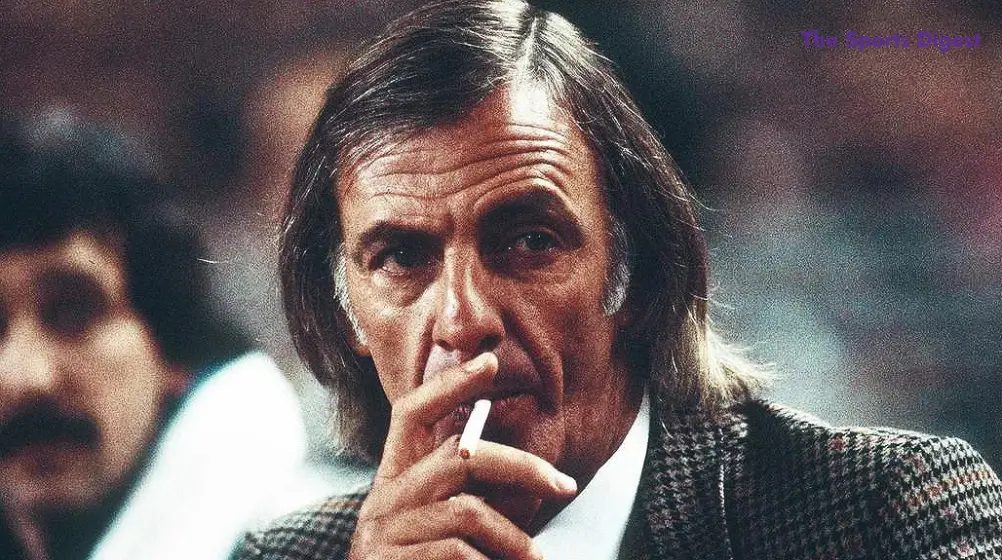César Luis Menotti: The Architect of Beautiful Argentine Football
César Luis Menotti arrived at a critical moment in Argentine football history. The year 1974 marked a dismal chapter, as the national team, once renowned for its flair and creativity, crashed out of the World Cup in West Germany with barely a whimper. Their play was stagnant, uninspired, and firmly rooted in the defensive-minded, result-oriented “Osvaldo Zubeldía school of thought” that had taken hold of Argentine football. This pragmatic approach—prioritizing results over style—had stripped the game of its joy and artistry. It was clear that Argentine football needed not just a new coach, but a revolutionary—someone who could reimagine what football meant to a nation where the sport was more than just a game.
Enter César Luis Menotti, “El Flaco” (The Thin One), a chain-smoking, philosophical figure whose arrival would fundamentally transform Argentine football’s identity. When appointed in October 1974, César Luis Menotti brought more than tactical knowledge; he introduced an entirely new footballing ideology. Tall, slim, and perpetually with a cigarette between his fingers, Menotti cut an intellectual figure on the touchline—more professor than coach.
“Football is effective when it’s beautiful,” César Luis Menotti once declared, encapsulating his core philosophy. Unlike his predecessors, Menotti viewed football not merely as athletic competition but as artistic expression—a vehicle for dreams and imagination. He rejected the notion that winning was the sole objective, insisting instead that how you played mattered profoundly.
Table of Contents
The Formative Influences
Menotti’s vision wasn’t born in isolation but shaped by specific influences that would define his approach. Chief among these was the magical Brazilian team of the 1970 World Cup, led by the incomparable Pelé. That Brazilian side played with a freedom and creativity that captivated César Luis Menotti, demonstrating that dominance could be achieved through beauty rather than brute force.
Perhaps more significant was Menotti’s experience with Huracán in 1973. Under his guidance, this modest club captured the Metropolitano championship playing breathtaking football that earned admirers nationwide. With players like René Houseman and Miguel Brindisi expressing themselves freely, Huracán became the embodiment of what César Luis Menotti believed football should be—fluid, skillful, and attack-oriented. This successful stint provided proof of concept for his philosophy and convinced the Argentine Football Association that he could replicate this approach at the national level.
Beautiful Football vs. Anti-Fútbol
Menotti didn’t just advocate for attacking football; he positioned his philosophy in direct opposition to what he termed “right-wing football” or what others called “anti-fútbol.” This was not merely a tactical disagreement but an ideological one. For César Luis Menotti, the pragmatic approach—focused exclusively on results through physical dominance, tactical fouling, and defensive solidity—represented a fundamental misunderstanding of football’s essence.
“A team above all is an idea,” he famously stated, emphasizing that football should reflect values beyond mere victory. Where anti-fútbol saw struggle and sacrifice as virtues, César Luis Menotti envisioned skill, creativity, and fluidity as football’s highest expressions. This philosophical stance earned him devoted followers known as “Menottistas,” who shared his belief that football should be played beautifully or not at all.
The 1978 World Cup: Triumph Amid Controversy
Menotti’s crowning achievement came in the 1978 World Cup on home soil. Implementing an attack-minded 4-3-3 formation, his Argentina side captured the nation’s first World Cup by defeating the Netherlands in the final. Players like Mario Kempes, Leopoldo Luque, and Osvaldo Ardiles embodied Menotti’s vision—technically gifted, creative, and committed to forward movement.
This achievement, however, unfolded against the disturbing backdrop of Argentina’s right-wing military dictatorship. The tournament itself became entangled in controversy, particularly surrounding Argentina’s 6-0 victory over Peru, which many alleged was influenced by extra-footballing factors. Despite these shadows, the blistering football played by Menotti’s team remained undeniable.
Perhaps the most controversial decision César Luis Menotti made was excluding a young Diego Maradona from the World Cup squad. Though the 17-year-old prodigy was already dazzling audiences, Menotti believed he wasn’t ready for the pressure of a home World Cup. History would later see Maradona flourish under Menotti’s guidance before reaching his peak with Carlos Bilardo at the helm in 1986.
The Birth of a Footballing Dichotomy
Menotti’s tenure with Argentina ended in 1982, but his influence had permanently altered the country’s footballing landscape. His successor, Carlos Bilardo, represented the antithesis of Menotti’s approach. Bilardo, a disciple of Osvaldo Zubeldía, prioritized results above all else. His pragmatic, defensively solid approach created a fundamental schism in Argentine football philosophy that persists today: “Menottisme” versus “Bilardisme.”
This dichotomy transcended tactical preferences, becoming almost a question of footballing morality. Menottistas viewed themselves as guardians of football’s soul, while Bilardistas positioned themselves as clear-eyed realists who understood that history remembers winners, not stylish losers. Interestingly, both approaches would deliver World Cup victories for Argentina—Menotti in 1978 and Bilardo in 1986—giving credence to both camps.
The Enduring Legacy
The philosophical divide between César Luis Menotti and Bilardo continues to influence modern football far beyond Argentina’s borders. Contemporary coaches often find themselves categorized as disciples of one school or the other. Diego Simeone, with his defensively astute, counter-attacking Atlético Madrid teams, clearly follows Bilardo’s pragmatic tradition. Conversely, Jorge Sampaoli’s high-pressing, possession-oriented approach echoes many of Menotti’s ideals.
What makes Menotti’s contribution so significant wasn’t just tactical innovation but his insistence that football should aspire to something beyond mere victory. In restoring joy and belief to Argentine football, he created a cultural movement that influenced generations of players and coaches. While tactical trends have come and gone, Menotti’s core belief—that football should be beautiful—remains a powerful counter-narrative in an increasingly result-oriented sport.
In today’s football landscape, dominated by data analysis and tactical rigidity, Menotti’s romantic vision might seem anachronistic to some. Yet his influence persists because he understood something fundamental: football is not merely sport but cultural expression. When played with creativity and joy, it captures something essential about human potential and imagination.
The beautiful game needs its idealists as much as its pragmatists. As modern football continues to evolve, César Luis Menotti’s legacy reminds us that how we play matters just as much as whether we win. In a world increasingly defined by outcomes rather than processes, this might be his most important lesson of all.
Have you ever read an article like this?
There are no reviews yet. Be the first one to write one.






